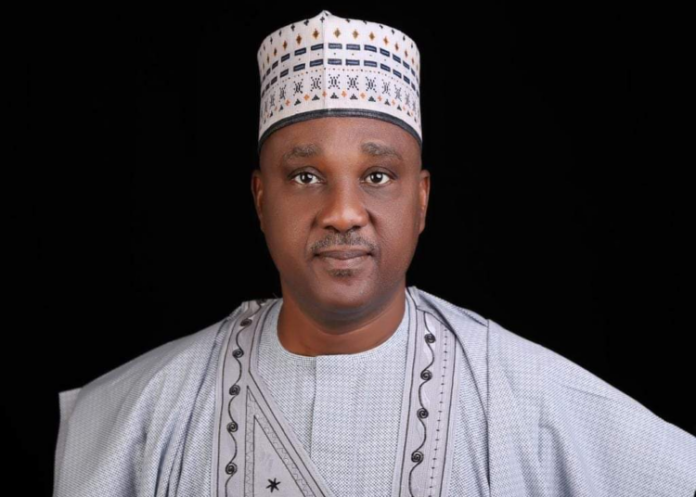Speaker of the House of Representatives, Rt. Hon. Abbas Tajudeen, has urged relevant stakeholders to work towards the passage of the gender-based bills. Addressing the stakeholders at the Town Hall and Strategic Roundtable on the Reserved Seats for Women Bill in Abuja yesterday, the speaker noted that the event was “to listen, to learn, and to lead.”
While noting that the town hall/strategic roundtable was not merely a routine event on our calendar, Speaker Abbas stated that it was “a deliberate moment of clarity, candour, and collective resolve,” stressing that it directly aligns with Agenda 6 of the 10th House Legislative Agenda on Inclusion and Open Parliament.
He explained that Agenda 6 is challenging the House to broaden representation, enhance transparency, and ensure that every Nigerian can see and hear themselves in the nation’s legislature.
“As you are all aware, the statistics on women’s underrepresentation are dismal. That is why the current proposals before the National Assembly on greater women’s inclusion are both urgent and pragmatic. There are several related bills before the National Assembly, and it is important that we understand their precise content. HB 1189, HB 1349, and HB 1421 each propose, in addition to the current three senators from each state and one senator from the Federal Capital Territory, one additional senator for each state and for the FCT who shall be a woman.
“For the House of Representatives, HB 1189 and HB 1421 propose, in addition to the current 360 members, two additional members for each state and the FCT who shall be women, while HB 1349 proposes one additional Member for each state and the FCT who shall be a woman.
“For the State Houses of Assembly, both HB 1189 and HB 1349 propose one additional member from each of the three senatorial districts in the state who shall be a woman. To accommodate these changes, all three bills propose that the Independent National Electoral Commission shall divide each state into two federal constituencies to be occupied by women,” Abbas said.
He noted that another proposed legislation seeks to establish six special seats in the House of Representatives for each of two special interest groups: women and persons living with disabilities, distributed evenly across the six geopolitical zones.
“It further provides that aspirants to these special seats shall meet all other qualifications for regular seats. It recommends a regional electoral college for each geopolitical zone, comprising all national officers of the association from the states within the zone, to determine the final representatives for the special seats.
“These proposals are thoughtful and ambitious, yet they raise practical questions that we must confront honestly and address. Some recommendations, in their current form, make the pathway more tedious, demanding, and burdensome for women seeking election to the House of Representatives,” the speaker said.
Abbas explained that a woman aspirant might be required to campaign across an area larger than a single federal constituency, possibly the size of a whole senatorial district or even more. This, he stated, is a significant challenge in logistics, finance, and time, especially for first-time aspirants who often face resource constraints.
On the criticisms against special seats instead of simple competition, the speaker stated that the playing field is not level, citing economic barriers, party gatekeeping, political violence, cultural stereotypes, and structural obstacles, which he said have produced persistent underrepresentation.
He said: “Temporary special measures are recognised democratic tools to correct systemic imbalance. Countries across Africa, Europe, Asia, and the Americas use them. They do not weaken democracy; they widen it. Importantly, too, these are temporary measures until the playing field is levelled. For this reason, all proposals include a sunset clause. The provisions commence after the life of the current National Assembly and are reviewed sixteen years after commencement.”
Abbas explained that the overall objectives of these bills are “to build a bridge, not a barrier,” adding that “we are opening an avenue, not closing a door.” He noted: “No sitting member loses a seat. No state surrenders existing representation. We are expanding, not reducing. We are adding, not subtracting.”
To galvanise the positions of stakeholders such as governors, party chieftains, traditional and religious leaders, among others, the Speaker launched a joint Working and Strategy Advocacy Committee comprising the House Committee on Women Affairs and the Committee on Women in Parliament.
“This committee will serve as our mobilisation engine, developing clear messages, translating the bill into accessible language for media, and coordinating stakeholder engagement. It will regularly update leadership on progress, challenges, and opportunities, enabling prompt action,” he said.
The Speaker added that we must formalise coordination within the legislature beyond the committee. Therefore, he proposed establishing a Reserved Seats Desk in the Senate and the House and encouraged every state House of Assembly to set up a similar desk.
“These desks will act as focal points for information management, stakeholder liaison, and legislative follow-up. By integrating these desks into our institutions, we transition from ad hoc enthusiasm to structured, steady, and sustained action,” he said.
Leadership


